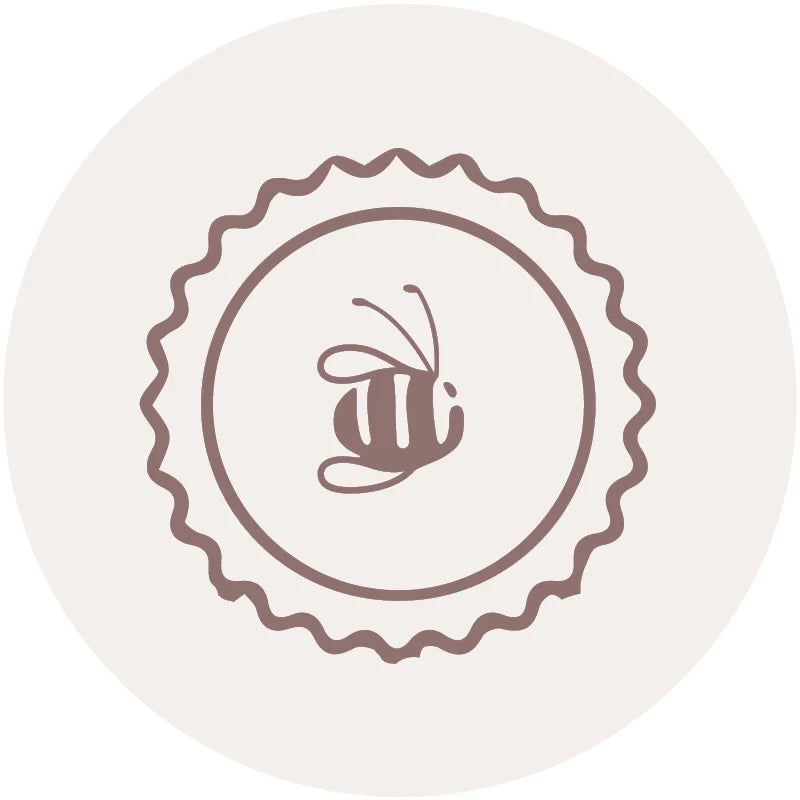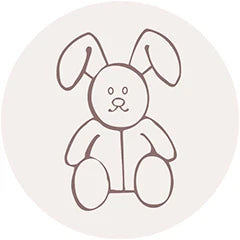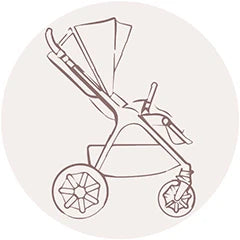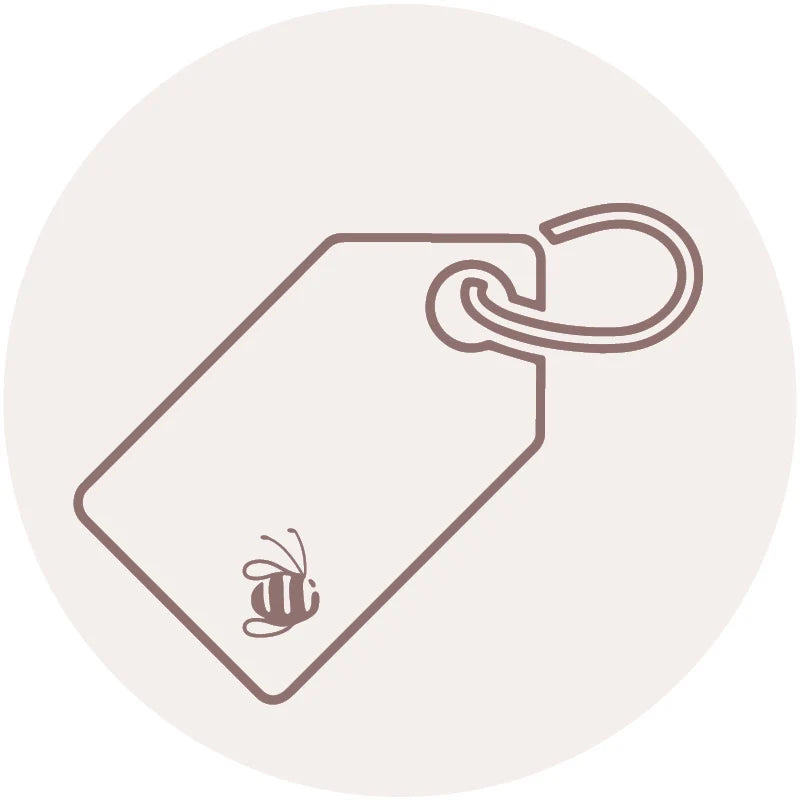Lion Chunky Puzzle
Lion Chunky Puzzle
SKU:DANIMA-L
Low stock
Couldn't load pickup availability
Overview
Overview
Help little ones learn while keeping them entertained with the fun Discoveroo Chunky Puzzle range. These fun beginner tray puzzles are perfect for toddlers, as they are safe and durable. The chunky pieces are easy to grip and with bold colours will capture children's imaginations, while teaching fine motor & problem-solving skills.
- Size - 14x14x2cm
- Suitable for use from 12mths+
- One wooden puzzle included only
- Made from plantation wood
Delivery and Returns
Delivery and Returns
- Delivery: Free within NZ on orders over $100 (excluding bulky items) or $8 standard shipping
- Returns: Accepted within 14 days of receipt with proof of purchase
- Some items are excluded from returns including sale items, hardware, car seats, prams, monitors and personal items - please click here for the full list.
Share this product
Recently Viewed Products
Related Blogs
Tummy Time for Baby's Development
Tummy Time: Why It Matters (and How to Make It Easier) Tummy time is one of those things you hear about early on in parenthood - right up there with sleep routines, feeding cues, and learning to drink a hot cup of tea while it's still warm! It’s recommended for your baby’s development, but the reality is, many little ones aren’t too thrilled about it at first. The good news? There are ways to make it easier for both of you. Before we get into the tips and tricks, let’s take a quick look at what tummy time actually is, and why it matters so much. Why is tummy time important? When your baby spends time on their tummy (while awake and supervised), they’re doing more than just working those tiny muscles. Tummy time plays a key role in helping to: Strengthen their neck, shoulders, arms, and back Support healthy motor development (like lifting their head, rolling over, and eventually crawling) Prevent flat spots on the back of their head (also known as positional plagiocephaly) It’s also laying the groundwork for milestones down the track. Chiropractor Dr Ainslee explains that, “Research has confirmed that tummy time not only helps children meet gross motor milestones like crawling, walking, and jumping. It also supports their social, cognitive, and learning development later in life.” So, what counts as tummy time? Tummy time doesn’t always have to mean placing your baby directly on the floor. It’s any time your baby is tummy-down while they’re awake and being supervised. Dr Ainslee puts it beautifully - it’s about “handling a baby in a way that naturally facilitates the development of interactive head control.” That means there are lots of ways to fit tummy time into your daily routine - even in those early newborn weeks. Gentle ways to start tummy time If your baby isn’t loving tummy time just yet, that’s okay. Start small and keep it gentle. Chest-to-chest: One of the easiest and most comforting ways to begin. Lie back and place your baby tummy-down on your chest. Skin-to-skin adds even more benefits. Football hold: Hold your baby tummy-down along your forearm, with your hand supporting their tummy and your other hand under their head. Keep them close - this one’s great for newborns. Across your lap: Another simple option that gives your baby some tummy time and lets you sneak in a burp or a cuddle. Baby expert Dorothy Waide encourages parents to start early, even just for a few seconds at a time. “The sooner you start, the quicker baby will adapt. If you begin with short bursts after each nap, you’ll soon find your little one starts to enjoy it more and more.” Making tummy time fun Tummy time doesn’t have to feel like a chore - for either of you. The more engaging it is, the more likely your baby will stick with it (and enjoy it too!). Try: Getting down to their level: Lie on the floor beside them, chat, sing, or just keep them company. Using mirrors or books: A mirror or a high-contrast board book placed in front of your baby can be fascinating for those curious eyes. Sensory toys: Toys like this Farm Activity Playmat are designed to make tummy time more exciting. It includes a removable cushion, a flip-up mirror, a delightful 3D farm animal, a squeaker animal, a teething toy, and an array of textures to touch and feel, making it an ideal companion for endless fun and learning. Supportive gear that can help The Little Bee by Dimples Baby Lounger is a handy tool for tummy time. It’s designed with a gently raised end that gives your baby the right angle to strengthen their upper body muscles in a supported way. The flat end provides a comfy space for rest - so it’s a multitasker. The Doomoo Softy is another great tummy time option — especially for younger babies. Drape your little one over the soft cushion so their arms and chest rest on it. It gently raises their upper body, helping them lift their head and build strength without feeling too flat on the floor. Plus, it doubles as a comfy feeding or lounging cushion when tummy time’s done. The takeaway? You don’t have to do it all at once — and your baby doesn’t have to love it right away. Like most things in early parenthood, tummy time is a journey. Start slow, keep it playful, and know that every minute counts. If you’re looking for supportive products to make tummy time easier, explore our collection of sensory play mats, baby loungers, and purpose-designed tummy time toys. You've got this.
Learn moreWhen Pets Meet Babies
For many families, pets are our first “babies” – loyal companions who’ve shared the couch, the bed, and plenty of milestones. So when a new human baby comes along, it’s natural to worry about how everyone will adjust.
Learn moreBaby Comforters: What Are They, and How To Introduce Them
There’s something very special about watching your baby snuggle into their favourite little blanket or soft toy. For many little ones, a comforter (or blankie) becomes more than just a bedtime accessory - it’s a trusted friend that brings a sense of calm and reassurance through every new stage of growing up.
Learn moreNewborns & Sleep: What to Expect and Survival Tips
Bringing a new baby home is one of life’s most beautiful - and exhausting - adventures. In this blog, Family Sleep & Wellness Coach, Lauren Moran from Little Dreamers, shares her expert advice on newborn sleep in the fourth trimester.
Learn more












